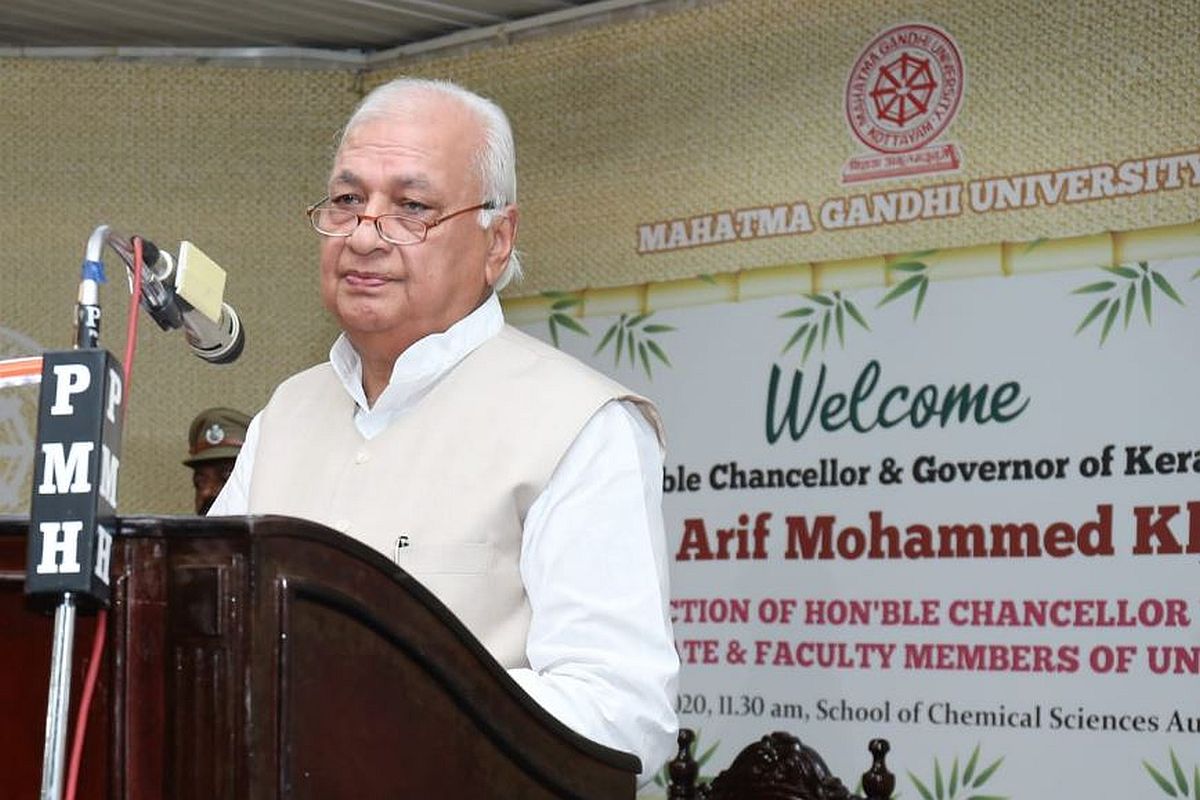AAP councilors protest against cancellation of mayoral polls
The party may move the court after taking legal opinion on the matter, said AAP leader Durgesh Pathak.
When the Kerala Assembly passed a resolution against the Citizenship (Amendment) Act, 2019, the Governor called it unconstitutional and accused the CPI(M)-led Left Democratic Front of concealing information from him.

Kerala Governor Arif Mohammad Khan. (Photo: Twitter | @KeralaGovernor)
Kerala Governor Arif Mohammed Khan, a neoconvert to the BJP, wants to prove himself more loyal than those wielding all power in Delhi. When the Kerala Assembly passed a resolution against the Citizenship (Amendment) Act, 2019, the Governor called it unconstitutional and accused the CPI(M)-led Left Democratic Front of concealing information from him.
He claimed that it was his bounden duty to defend the laws enacted by Parliament. The Constitution has not conferred such sweeping powers on the Governor nor has the Supreme Court authorised the office of the Governor to arbitrate on the constitutional validity of laws made by the Union government.
If the BJP is opposed to the Kerala resolution, its lone representative in the State legislature, O Rajapal, could have voted against it. He did not. The resolution was passed unanimously by the House. And the Kerala government has challenged the impugned Act in the Supreme Court. The Governor insists the State government should have consulted him before taking the issue to the Supreme Court.
Advertisement
Under our constitutional scheme of things, it is the Chief Minister, as head of the government, who should, under Article 163, “aid and advise” the Governor. The Supreme Court has not disallowed the Kerala government’s petition on the ground it lacked the Governor’s assent. The Kerala Assembly is scheduled to begin its New Year session on 29 January with the traditional Governor’s address.
Since the address is prepared by the Council of Ministers, it is bound to reflect the government’s views on CAA. The Governor is at liberty not to read the relevant portion to express his displeasure, but he cannot accuse the government of keeping him in the dark.
Insisting the Kerala government withdraws its suit in the Supreme Court, Khan said in a letter to the chief secretary that the Chief Minister was duty bound to take the Governor’s permission before filing the appeal against the CAA in the Supreme Court. In reality, there is no such constitutional convention. When the suit is against the Union government, it is unrealistic to expect permission from the Governor who is after all an agent of the Centre.
The Governor perforce must abide by the Union Home Minister, chief architect of the CAA. In the Shamsher Singh case, the Supreme Court had said the Governor is only a formal head. The real executive powers were vested in the Council of Ministers who were collectively responsible to the legislature.
Regarding furnishing of information to the Governor, Article 167 makes it clear that “It shall be the duty of the Chief Minister of each State to (a) communicate to the Governor all decisions of the Council of Ministers relating to the administration of the State and proposals for legislation; (b) to furnish such information relating to the administration of the affairs of the State and proposals for legislation as the Governor may call for.”
There is certainly no constitutional requirement for a State to obtain the permission of the Governor regarding its executive decision to file a case.
Advertisement